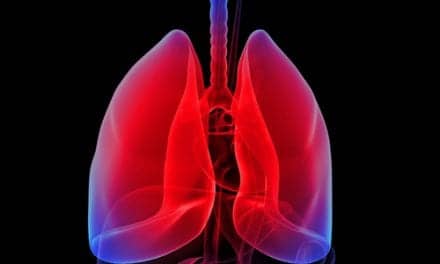Patients who have non-small-cell lung cancer (NSCLC) with epidermal growth factor receptor (EGFR) gene mutation-positive disease responded well to the administration of erlotinib in combination with chemotherapy as a first-line treatment strategy, according to study results published in The Lancet Oncology.
The FDA approved erlotinib (trade name Tarceva, from Astellas Pharma Inc) for the first-line treatment of patients with advanced NSCLC in May 2013. According to the study, the treatment also appeared to be beneficial for selected patients with unknown EGFR mutation status.
In the phase 3 randomized, controlled trial, intercalated therapy significantly prolonged progression-free survival (PFS) compared with chemotherapy alone, with the treatment benefit being restricted to patients with an activating EGFR gene mutation. While the treatment benefit was greater for patients with EGFR-activating mutations, there was no detrimental effect for those without mutations, suggesting that “the regimen be considered for patients with an unknown mutation status in whom clinical parameters are suggestive of a high incidence of EGFR mutations.”
For the research, 451 patients with untreated stage IIIB/IV NSCLC received 6 cycles of gemcitabine on days 1 and 8, plus carboplatin or cisplatin on day 1. Additionally, patients were randomly assigned to receive intercalated erlotinib (n=226) or placebo (n=225) on days 15–28.
Researchers found PFS to be significantly longer with chemotherapy plus erlotinib than with chemotherapy plus placebo. Intercalated therapy was also significantly associated with longer median overall survival. In all, 43% of patients on combination therapy had an objective response versus just 18% of those given chemotherapy plus placebo, a statistically significant difference.
“[T]his combination offers a new treatment option for patients with unknown EGFR status,” according to the authors. “Using this intercalated combination, treatment outcomes are potentially better than those with the standard chemotherapy regimen that patients with unknown EGFR status would otherwise receive.”







